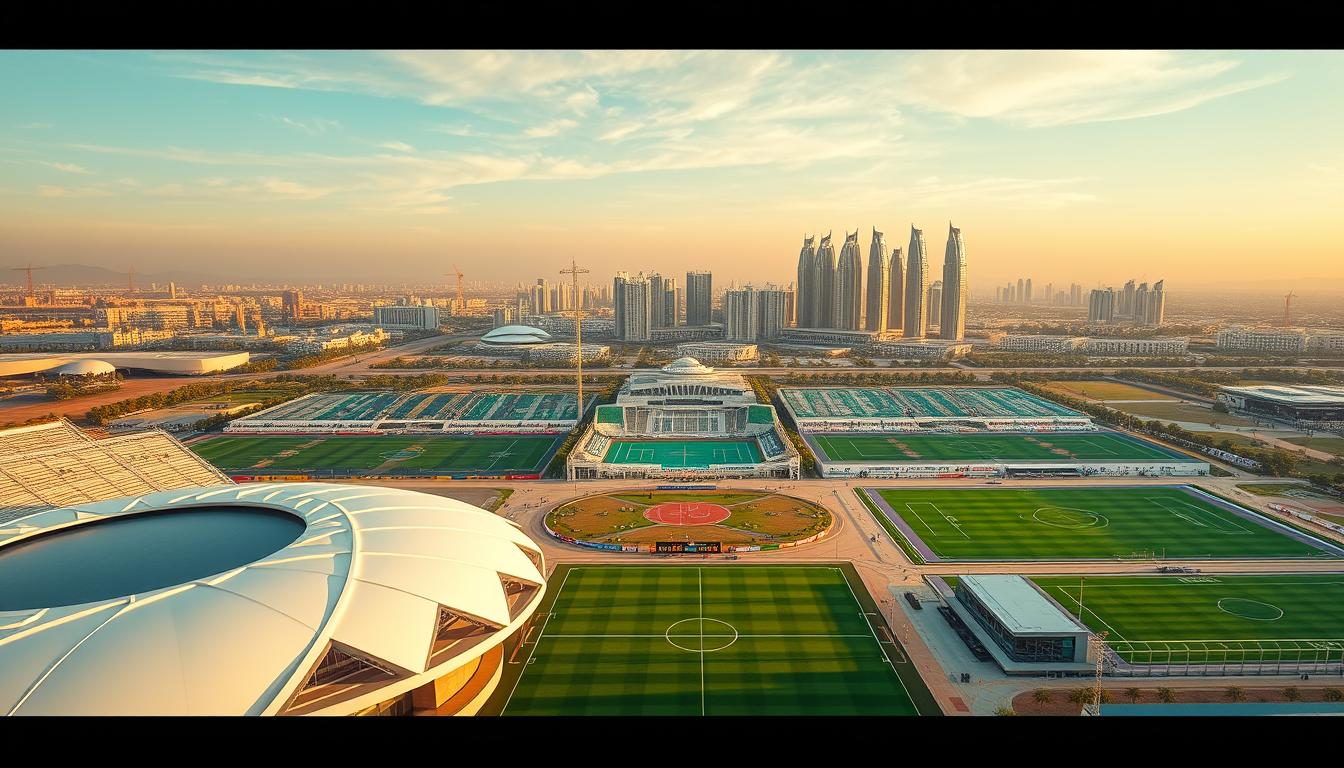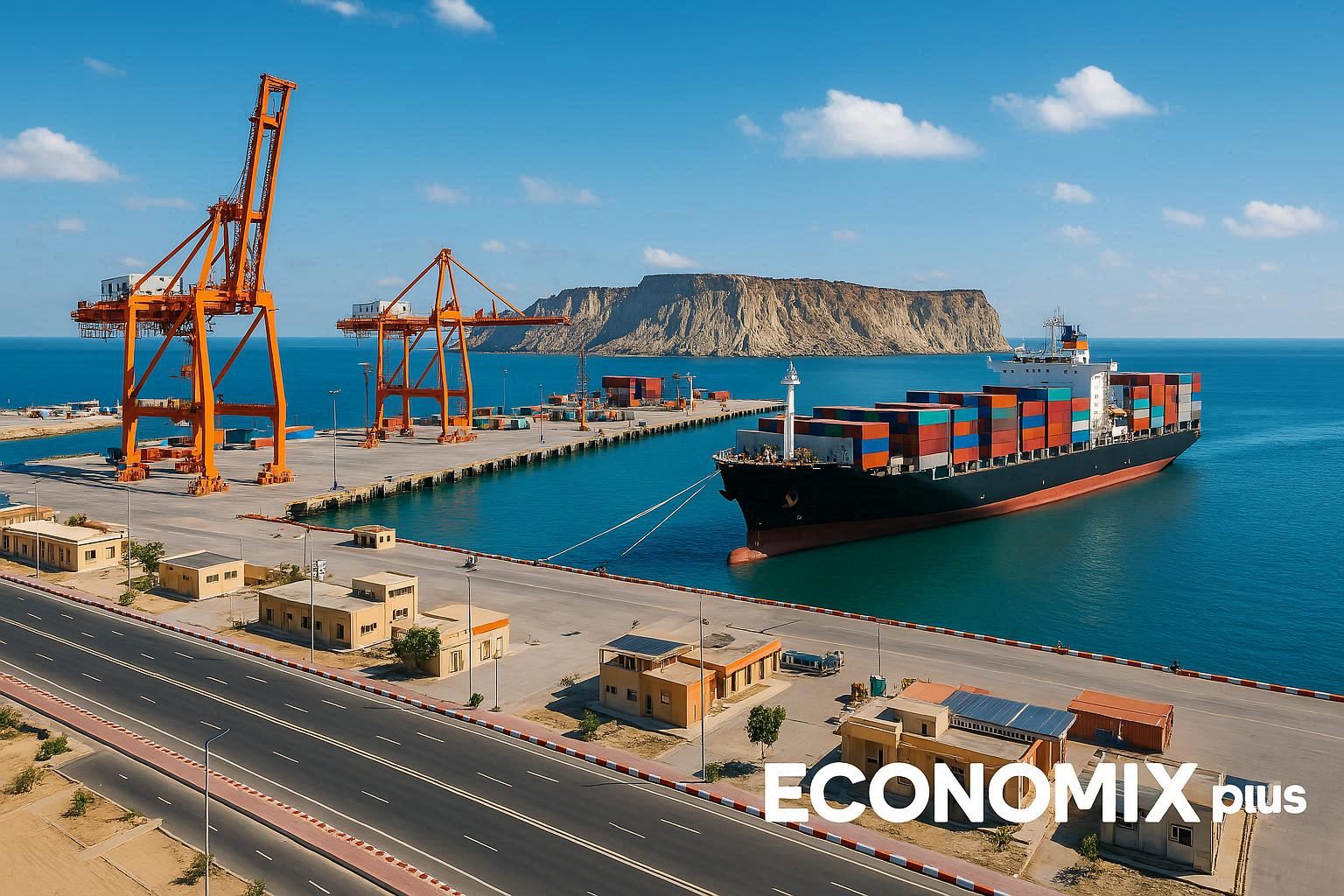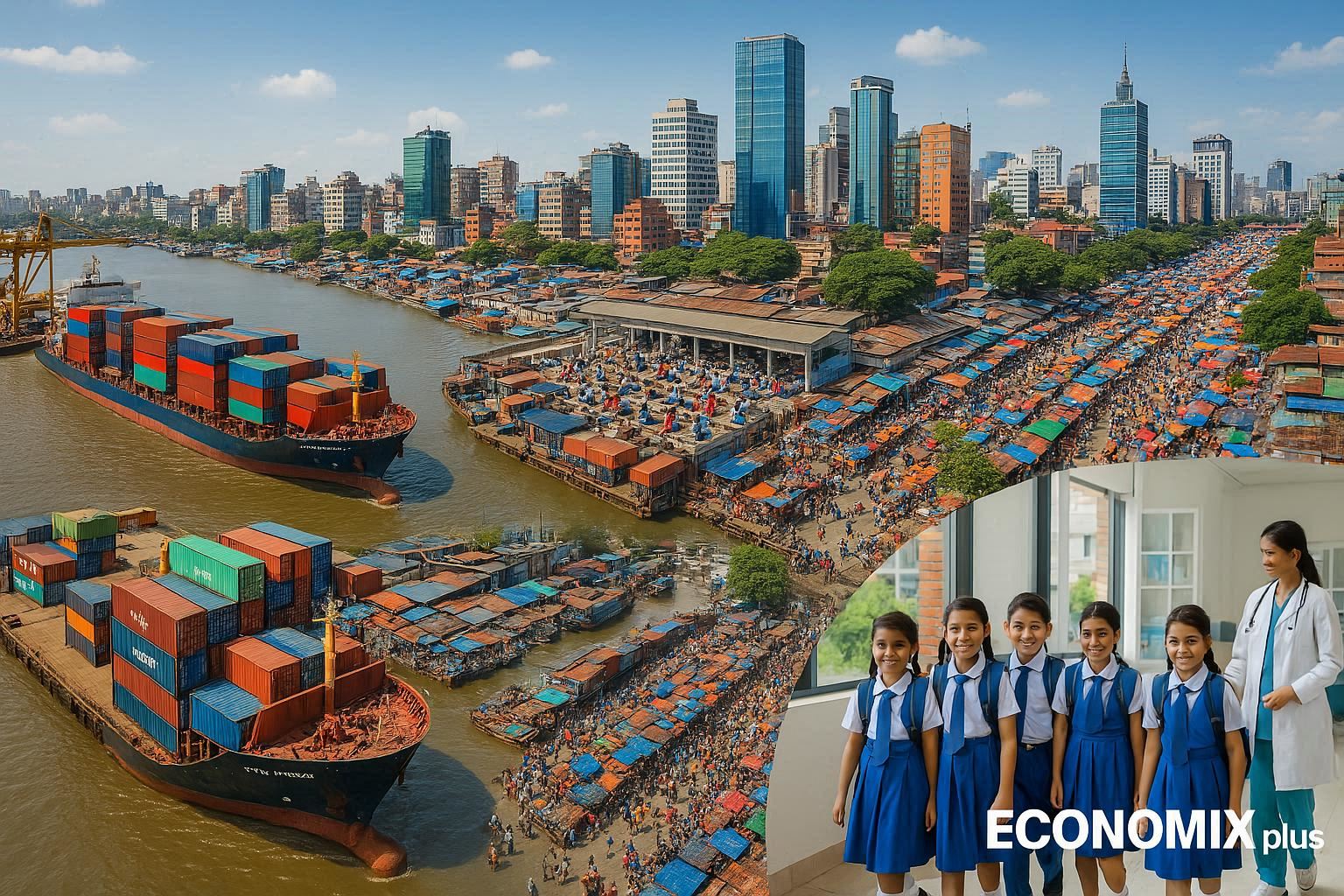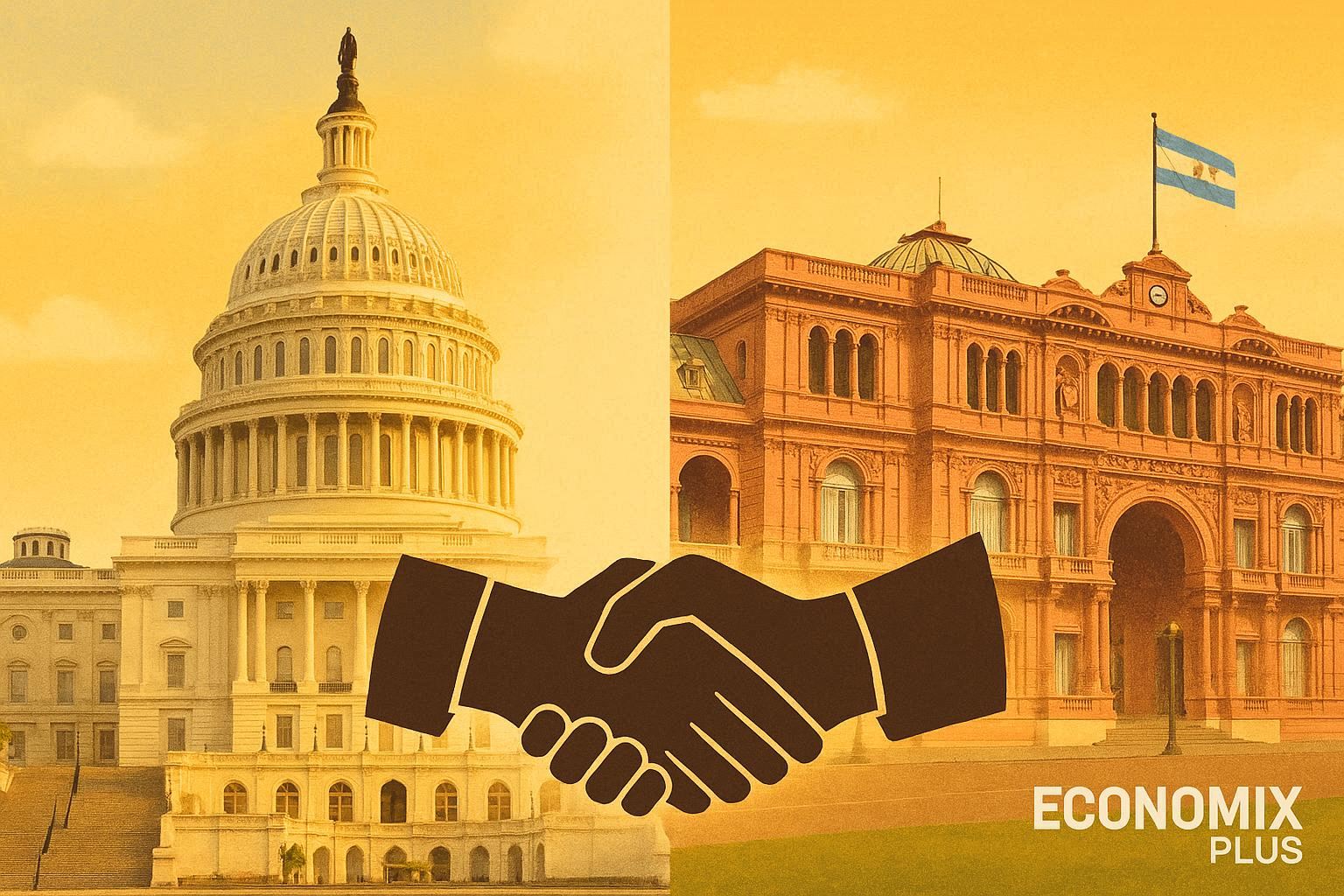What if a nation could rewrite its economic future through soccer matches, boxing events, and marathon races? This isn’t a hypothetical scenario—it’s the bold reality unfolding in the Middle East. Under Crown Prince Mohammed bin Salman’s leadership, one country is betting big on athletic ambition to fuel progress far beyond stadiums.
The Vision 2030 blueprint aims to transform reliance on oil into a dynamic, innovation-driven society. Billions flow into hosting global tournaments, launching leagues, and building world-class facilities. The Public Investment Fund leads this charge, acquiring stakes in international clubs and sponsoring events like the Dakar Rally.
But the stakes go deeper than trophies. Initiatives like Sports for All encourage grassroots participation, fostering healthier lifestyles and community pride. Youth programs aim to channel the energy of a population where 63% are under 30—a strategy to shape tomorrow’s leaders while boosting tourism.
From New York boxing spectacles to partnerships with American tech firms, these moves signal more than economic shifts. They’re cultural bridges, reshaping perceptions while creating jobs and attracting foreign investment. The game plan? Turn athletic passion into lasting national momentum.
Key Takeaways
- Vision 2030 uses sports as a catalyst for reducing oil dependence and modernizing society
- Historic investments include LIV Golf mergers and elite athlete recruitment programs
- Grassroots initiatives boost public health while unifying diverse communities
- Youth engagement strategies target long-term social and economic benefits
- Global partnerships enhance international standing and attract tourism
The Foundation of Vision 2030: Diversification Beyond Oil
Strategic capital allocation is rewriting the playbook for economic resilience. At its core lies a bold shift: leveraging entertainment and athletic ventures to build sustainable revenue streams. This pivot addresses a critical challenge—reducing reliance on fossil fuels while unlocking new opportunities.
Public Investment Fund and Sports Investments
The Public Investment Fund drives this transformation through multibillion-dollar commitments. From acquiring Premier League soccer clubs to backing groundbreaking golf leagues, these sports investments serve dual purposes. They generate tourism revenue while positioning the nation as a global events hub.
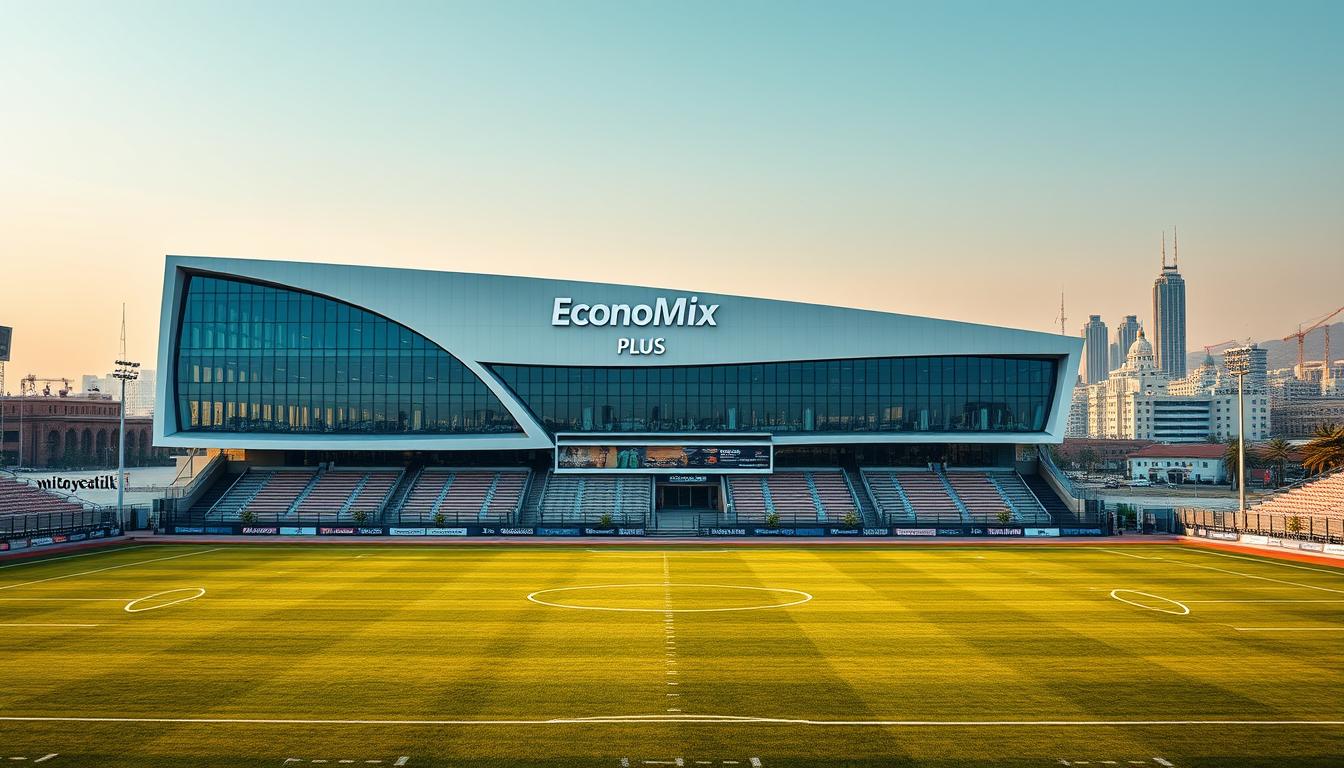
Social and Economic Reforms Driving Change
Beyond stadiums, reforms aim to reshape societal participation. Modernized labor laws and increased female workforce inclusion amplify the economy away oil strategy. Urban development projects near sports complexes create jobs in hospitality and retail sectors.
Annual targets track progress in non-energy sectors, with entertainment contributing 3% to GDP by 2030. Youth training programs prepare locals for careers in event management and sports medicine. Every dollar spent becomes a stepping stone toward long-term growth and community empowerment.
Saudi sports vision from fields to a diversified economy
Global stadiums have become unexpected platforms for cultural transformation. By hosting marquee events like the Dakar Rally and WWE spectacles, the Kingdom challenges preconceived notions while showcasing evolving social norms. These efforts align with broader goals to present Saudi Arabia as a modern hub for international collaboration.
Breaking Traditional Narratives
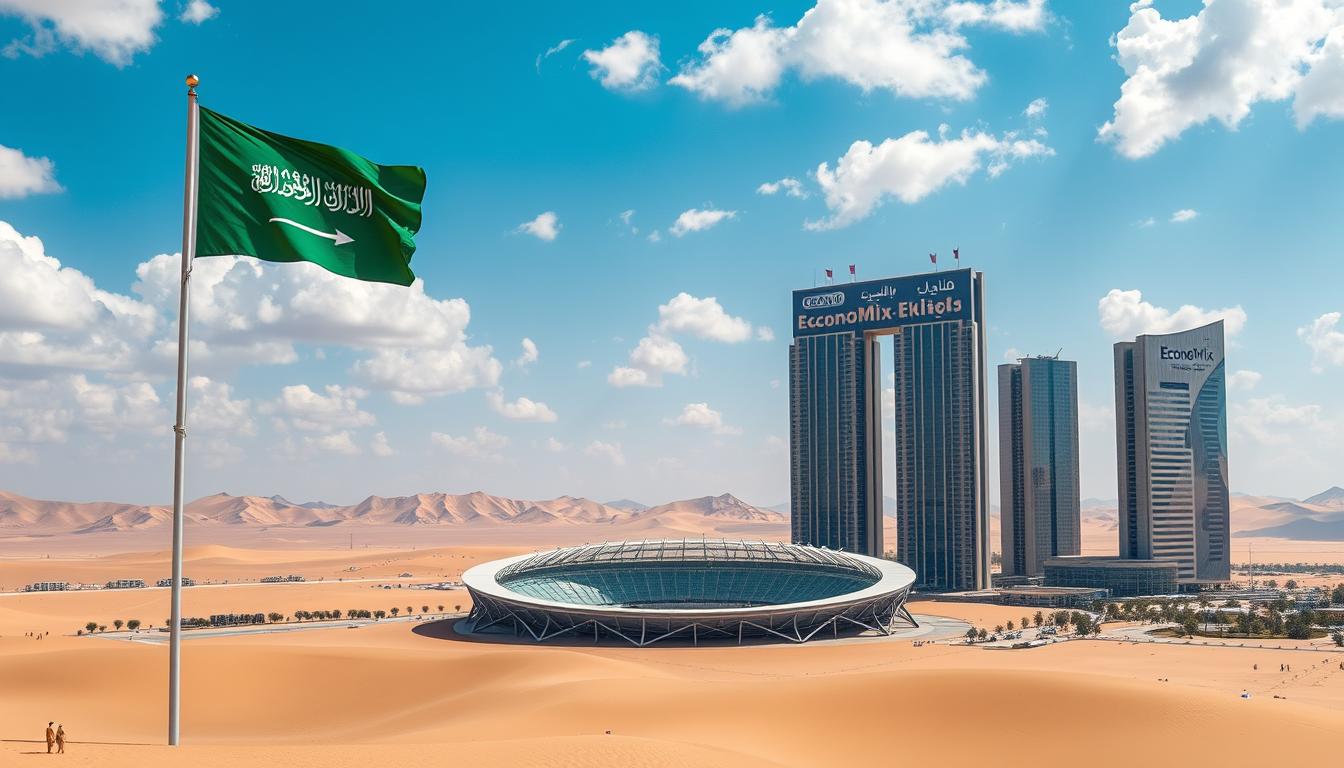
High-profile tournaments do more than entertain crowds—they rewrite scripts about regional capabilities. When female athletes competed in Jeddah’s first women’s cycling event, it signaled shifting priorities. Grassroots programs now engage 48% of citizens in regular physical activity, fostering unity across age groups and genders.
Elevating National Image Through Sports
Strategic public investment in athletics serves as a diplomacy tool. Partnerships with global brands like ESPN and partnerships with the world’s top soccer clubs amplify positive exposure. Over 1.5 million sports fans attended international events last year, many leaving with changed perspectives about the nation’s cultural landscape.
This dual approach—celebrating heritage while embracing progress—strengthens both local pride and global standing. As Vision 2030 unfolds, athletic achievements become milestones in a larger journey toward redefined national identity.
Innovative Sports Investments and Cultural Rejuvenation
When stadium lights illuminate more than just games, they reveal pathways to societal change. A groundbreaking shift is unfolding where athletic programs double as engines for community transformation. At its core lies a commitment to redefining participation—for women, youth, and entire neighborhoods.
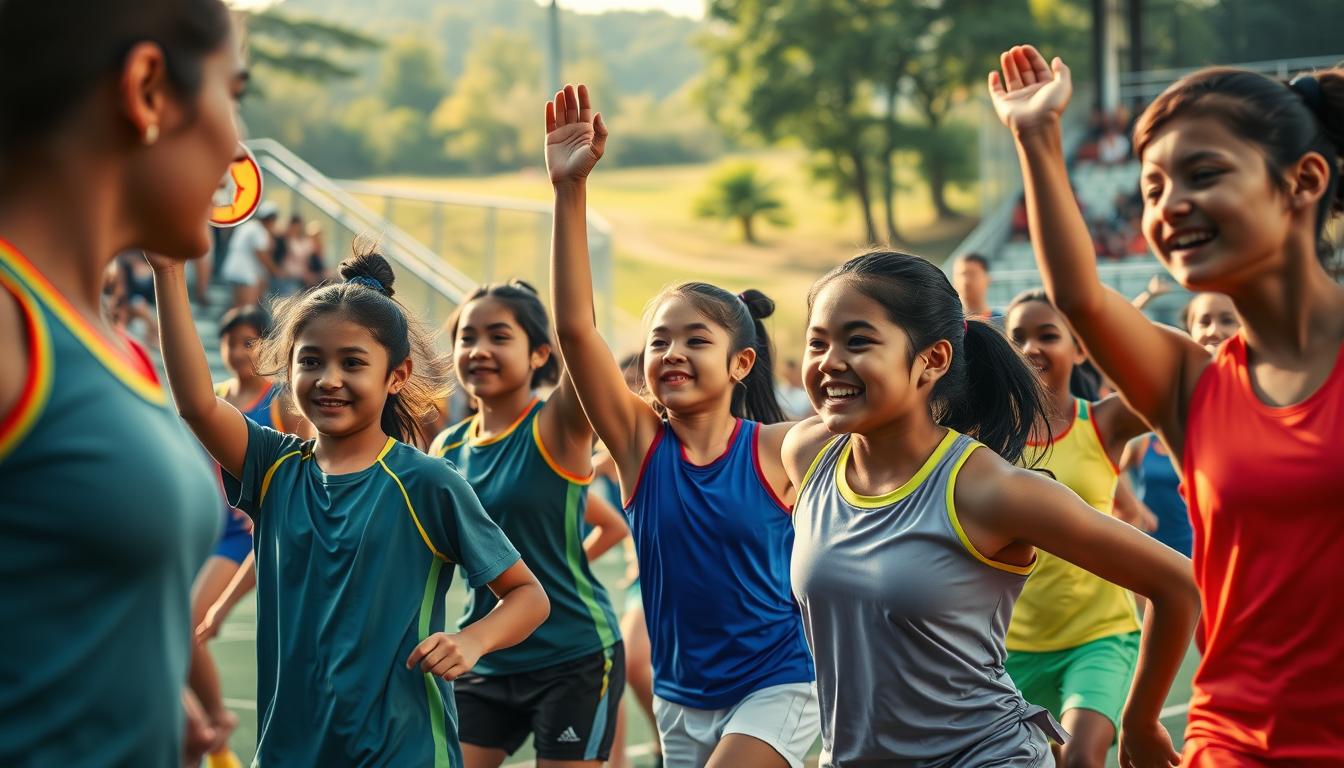
Empowering Women and Youth in Sports
New policies now allow women to own fitness centers and compete professionally—a radical departure from past norms. Over 450 female-only gyms opened last year, creating safe spaces for physical activity. Young girls train alongside Olympians in state-funded programs, rewriting generational narratives about gender roles.
Youth initiatives spark career revolutions beyond the field. Vocational academies teach sports marketing and event production, with 12,000 graduates entering the workforce annually. “These skills build confidence and economic stability,” notes a program director. Coaching certifications now rank among the fastest-growing professional credentials.
The investment fund fuels this cultural shift through entertainment partnerships. Music festivals at racing circuits and esports arenas in shopping malls attract diverse crowds. Each venue becomes a melting pot where tradition meets modern aspiration.
These investments align perfectly with broader national goals. By 2025, 40% of sports leadership roles will target female candidates. Community leagues reduce urban-rural divides through regional tournaments. What began as sports investments now powers a movement where every dribble, sprint, and cheer writes a new chapter in collective progress.
International Sports Engagement and Strategic Diplomacy
Athletic competitions now transcend stadiums, becoming platforms for global dialogue. High-stakes collaborations like the proposed PGA-LIV golf merger demonstrate how shared economic interests can bridge political divides. These partnerships reflect Crown Prince Mohammed bin Salman’s strategy to position the Kingdom of Saudi Arabia as a proactive player on the world stage.
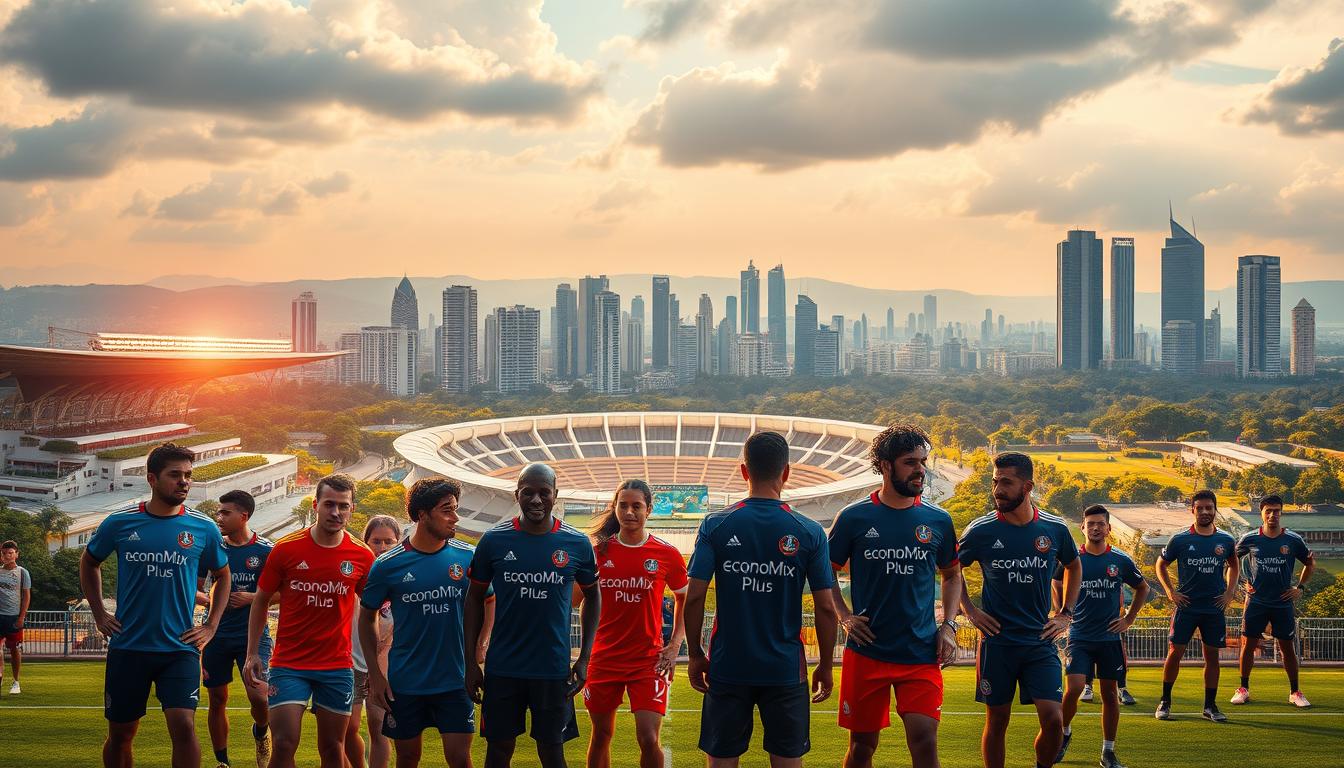
Sports as a Diplomatic and Cultural Bridge
Bids to host events like the World Cup showcase how athletics foster international cooperation. Recent agreements with the United States on training facilities and technology transfers highlight mutual gains. “Sports create common ground where politics often falter,” notes a State Department official involved in bilateral talks.
Cultural exchanges through tournaments address stereotypes while advancing human rights discussions. Joint youth programs between American universities and Gulf institutions prepare students for careers in emerging sectors. These initiatives transform athletic passion into lasting people-to-people connections.
Strengthening US-Saudi Relations
Investments in American sports franchises and media deals signal deepening ties. Over $10 billion in recent ventures created opportunities across both nations’ entertainment industries. A senior U.S. trade representative states: “Shared goals in innovation make athletics an ideal collaboration space.”
While challenges persist, strategic dialogues now integrate human rights progress with economic plans. The United States views these evolving partnerships as pathways to regional stability. As Prince Mohammed bin Salman’s vision unfolds, courts and fields become testing grounds for a reimagined global alliance.
Esports Innovation: The Next Frontier for Saudi Influence
Virtual arenas are becoming economic battlegrounds where nations compete for digital dominance. The Kingdom recognizes this shift, channeling resources into gaming ecosystems that resonate with its tech-savvy youth population.
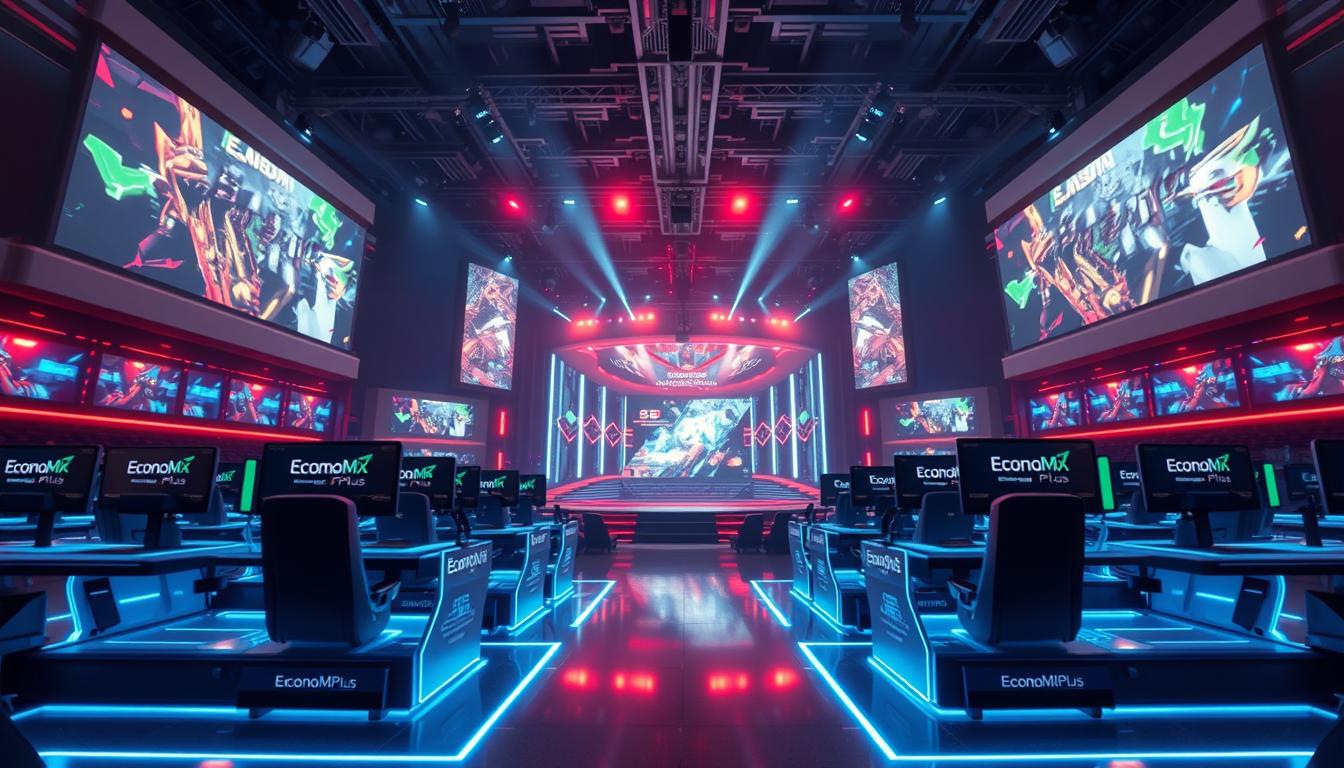
Investments in Gaming and Digital Entertainment
Strategic moves reveal bold ambitions. A $1 billion investment in mobile gaming giant Scopely made headlines, while acquisitions of ESL Gaming and FACEIT created a unified competitive platform. These projects position the nation as a hub for global tournaments.
| Initiative | Scope | Impact |
|---|---|---|
| Gamers8 Festival | Largest esports prize pool ($45M) | 120,000+ attendees in Riyadh |
| Savvy Games Group | $38B budget through 2030 | Creates 39,000 jobs |
| ESL Pro Tour | 30+ annual events | Engages 300M viewers |
Future Opportunities in Youth-Centered Esports
New leagues target Generation Z through mobile gaming and streaming platforms. “We’re building bridges between players and investors,” explains a tournament organizer. Educational programs now teach game design alongside traditional STEM subjects.
Regional partnerships aim to standardize esports regulations across 22 countries. This coordinated approach saves time for organizers while attracting international sponsors. As virtual stadiums fill with avatars, the future of entertainment takes shape—one click at a time.
Catalyzing Economic Growth Through Sports and Entertainment
Stadiums and concert halls are morphing into economic powerhouses, generating ripple effects across local communities. Strategic event hosting and innovative entertainment models create pathways for sustainable development while reshaping traditional industries.
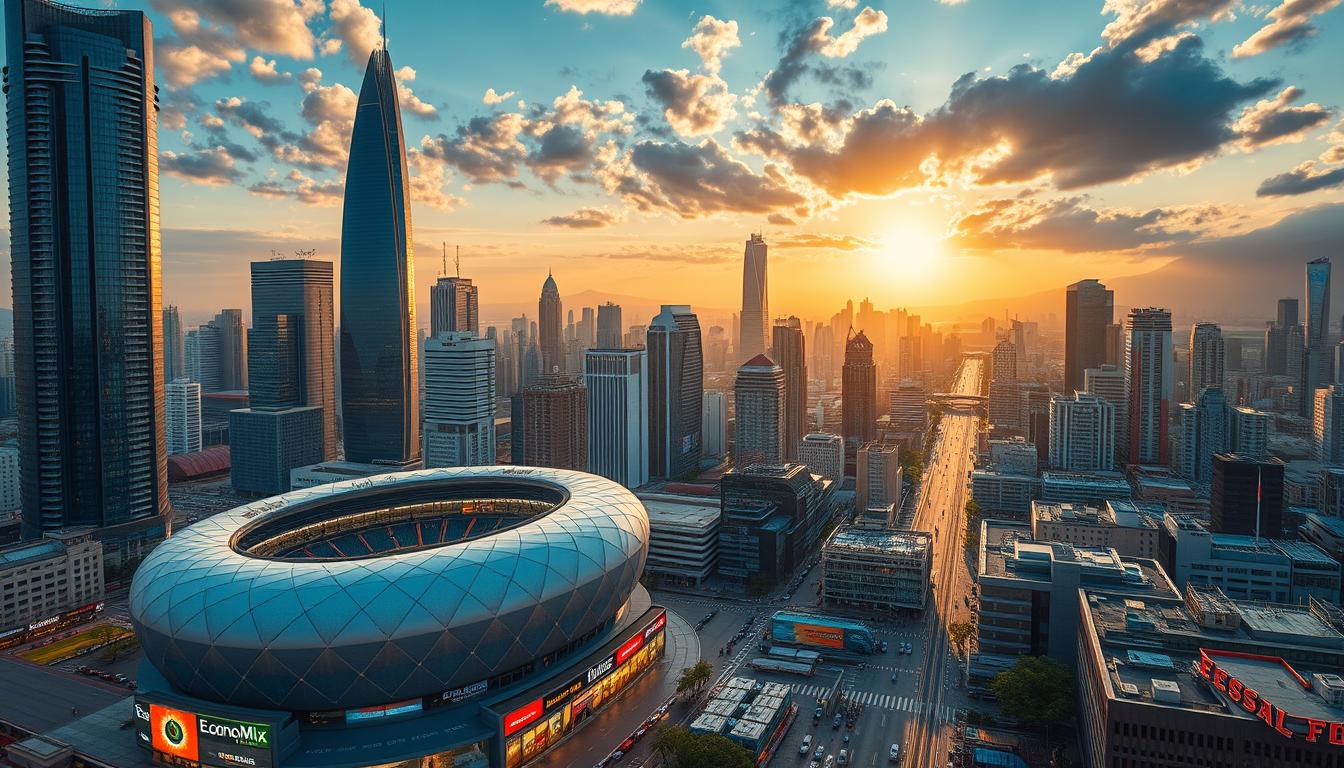
Leveraging Global Sporting Events for Job Creation
Mega-events like the Dakar Rally and WWE Crown Jewel have become employment engines. Each tournament generates 15,000+ temporary roles in logistics, hospitality, and security—with 40% of workers retaining permanent positions. Training academies now partner with global brands to upskill locals in event management and venue operations.
A recent analysis reveals entertainment projects contributed $4 billion to non-oil GDP last year. Youth-focused programs in Riyadh and Jeddah connect graduates with emerging roles in sports tech and tourism services.
Expanding Entertainment Ventures Beyond Traditional Models
The Qiddiya entertainment megaproject exemplifies this shift. Combining theme parks with eSports arenas and racing circuits, it aims to create 57,000 jobs by 2030. Hybrid venues host concerts alongside startup incubators, blending leisure with economic opportunity.
Partnerships with Hollywood studios and streaming platforms amplify local creative efforts. The Red Sea Film Festival’s economic impact surpassed $180 million in 2023, funding regional production studios and talent development centers. These ventures prove entertainment isn’t just about spectacle—it’s a scaffold for nationwide growth.
By aligning global interests with community needs, the country demonstrates how strategic investments uplift entire populations. From stagehands to app developers, opportunities now extend far beyond traditional roles—benefiting others who once faced limited career prospects.
Conclusion
Where athletic ambition meets economic strategy, a blueprint for modern transformation emerges. The economy away oil initiative, spearheaded by Crown Prince Mohammed bin Salman, demonstrates how arenas and digital platforms can reshape national trajectories. Through Vision 2030, the Kingdom has turned stadiums into catalysts for job creation, gender equality, and tech innovation.
Historic reforms now empower women to lead fitness centers and compete globally. Youth programs bridge traditional sports with esports, capturing investors‘ attention worldwide. Partnerships with the United States and global brands amplify cultural exchanges while addressing human rights priorities.
This multi-layered approach redefines international perceptions. From boxing spectacles to gaming festivals, every event builds bridges with fans and policymakers alike. Responsible investments ensure progress benefits all citizens—urban and rural, young and old.
The journey ahead remains bold. As traditional competitions merge with virtual battlegrounds, the Kingdom positions itself at the crossroads of entertainment and innovation. Through sustained interest in people-centered growth, this strategy promises to elevate global standing while nurturing homegrown talent. The final whistle hasn’t blown—it’s just halftime in a game-changing era.
